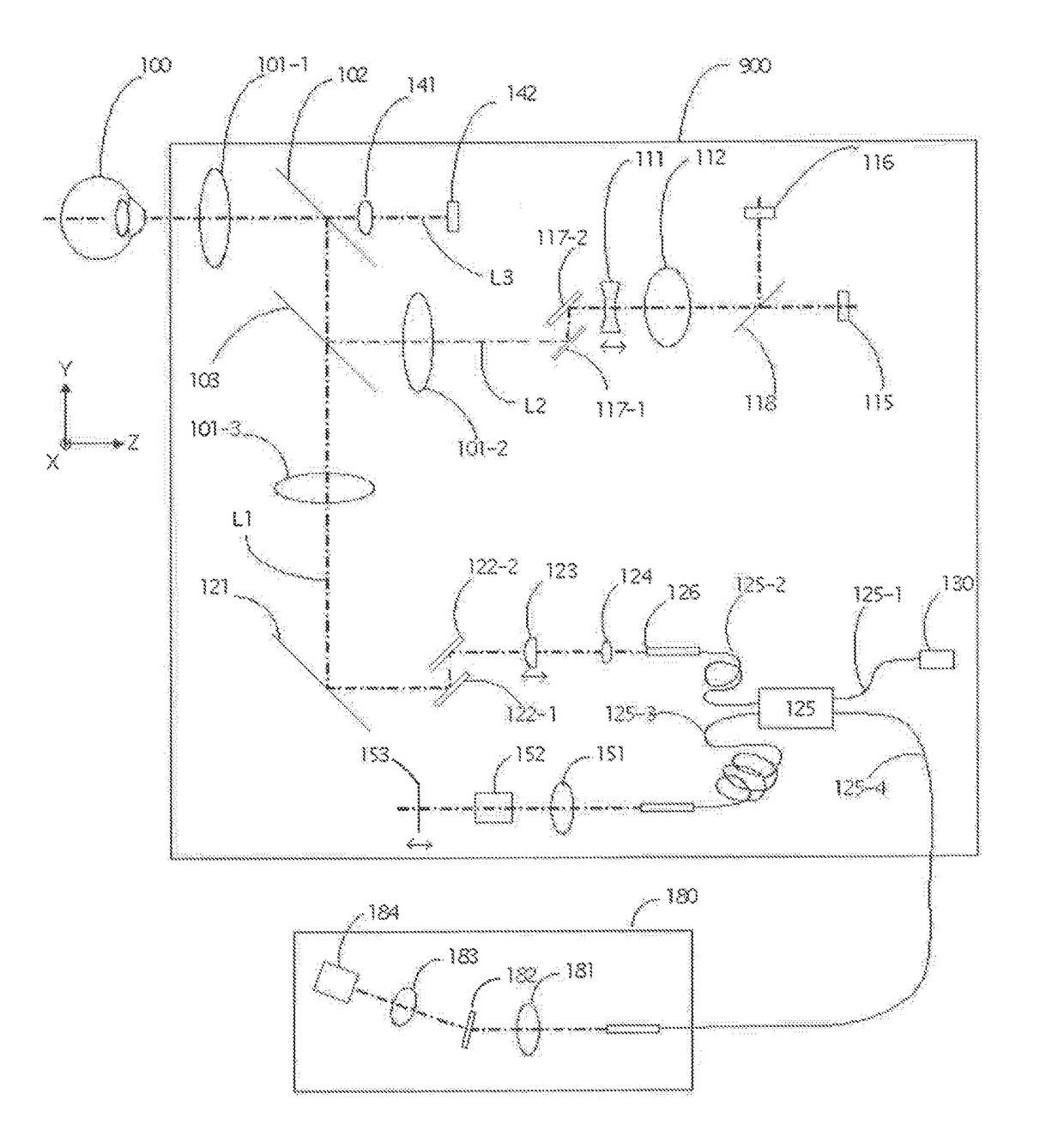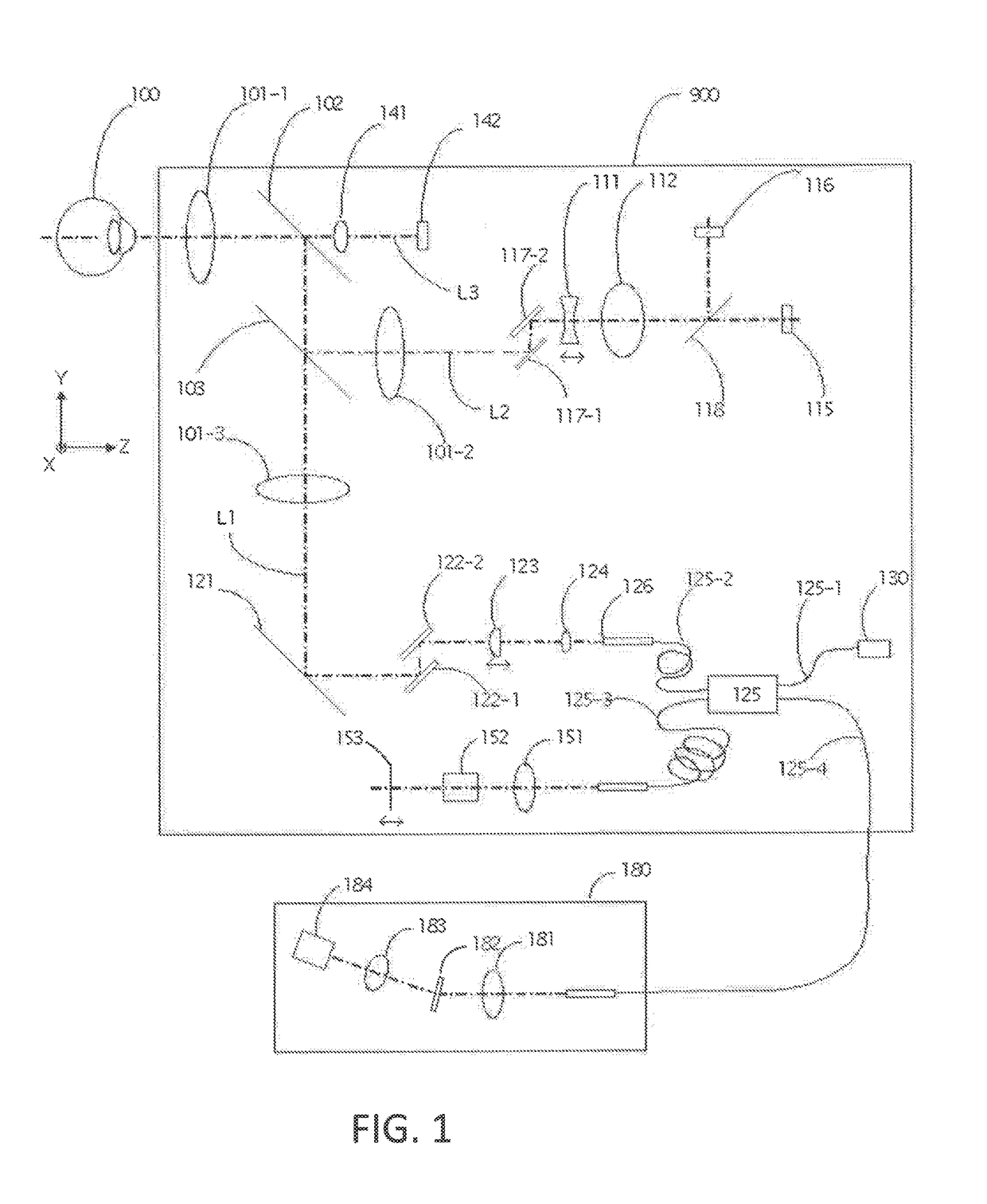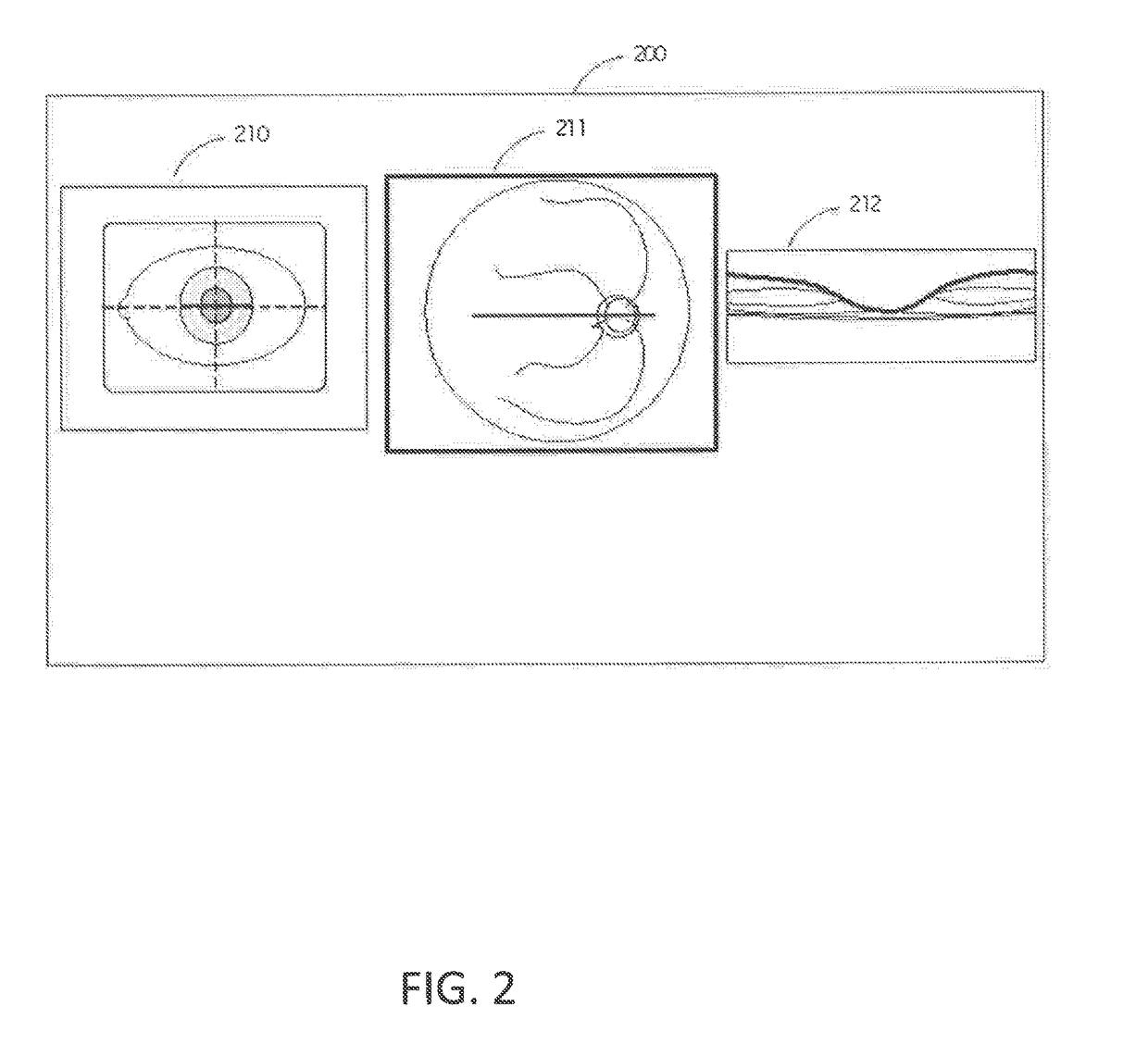Retinal movement tracking in optical coherence tomography
a technology of optical coherence tomography and retinal movement, applied in image analysis, medical science, diagnostics, etc., can solve the problems of reducing the effect of feedback loops, requiring more information than necessary, and requiring extra processing burdens
- Summary
- Abstract
- Description
- Claims
- Application Information
AI Technical Summary
Benefits of technology
Problems solved by technology
Method used
Image
Examples
Embodiment Construction
[0035]The arrangement of an optical coherence tomographic apparatus (OCT apparatus) will be described with reference to FIG. 1. The optical coherence tomographic apparatus includes an optical head 900 and a spectrometer 180. The optical coherence tomographic apparatus obtains a tomographic image of an object to be examined based on the light obtained by combining return (i.e. reflected, but also some scattered) light from the object that has been irradiated with measurement light with reference light corresponding to the measurement light.
[0036]The internal arrangement of the optical head 900 will be described first. The optical head 900 comprises a measurement optical system for capturing an anterior eye image of an eye 100 to be examined as well as a two-dimensional image and a tomographic image of the fundus. An objective lens 101-1 is disposed to face the eye 100. On the optical axis of this lens, a first dichroic mirror 102 and a second dichroic mirror 103 serve as optical path...
PUM
 Login to View More
Login to View More Abstract
Description
Claims
Application Information
 Login to View More
Login to View More - R&D
- Intellectual Property
- Life Sciences
- Materials
- Tech Scout
- Unparalleled Data Quality
- Higher Quality Content
- 60% Fewer Hallucinations
Browse by: Latest US Patents, China's latest patents, Technical Efficacy Thesaurus, Application Domain, Technology Topic, Popular Technical Reports.
© 2025 PatSnap. All rights reserved.Legal|Privacy policy|Modern Slavery Act Transparency Statement|Sitemap|About US| Contact US: help@patsnap.com



